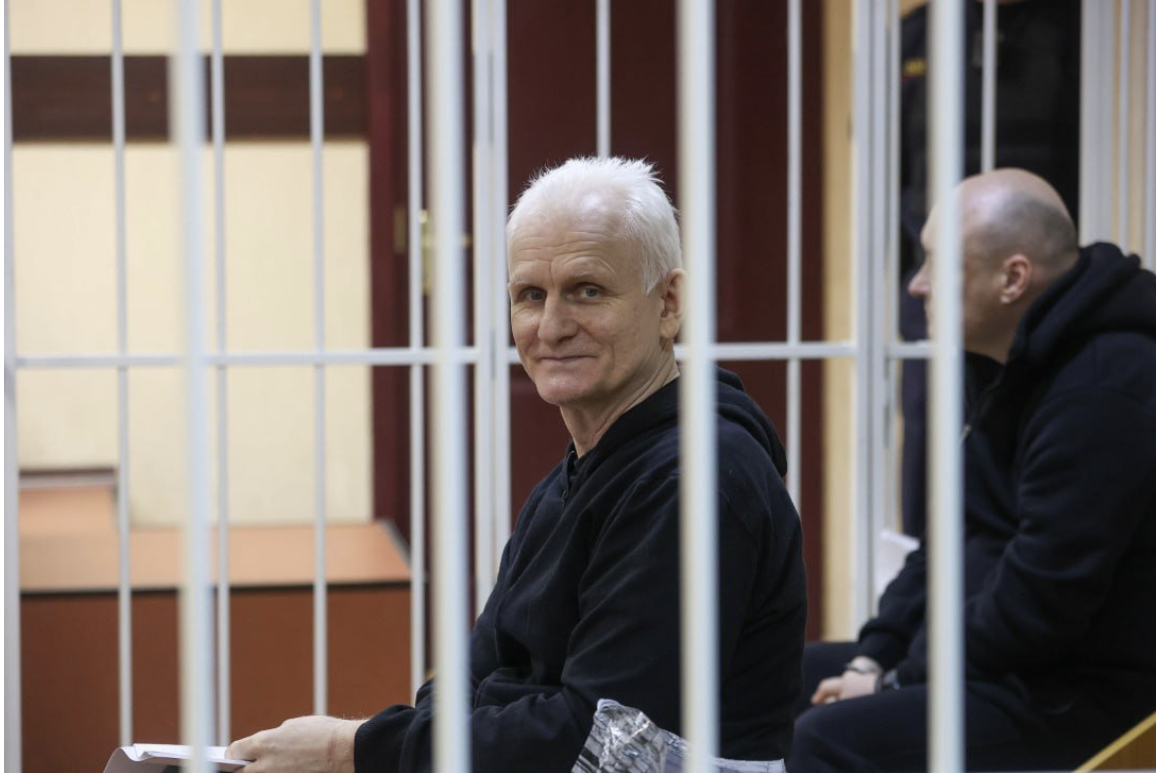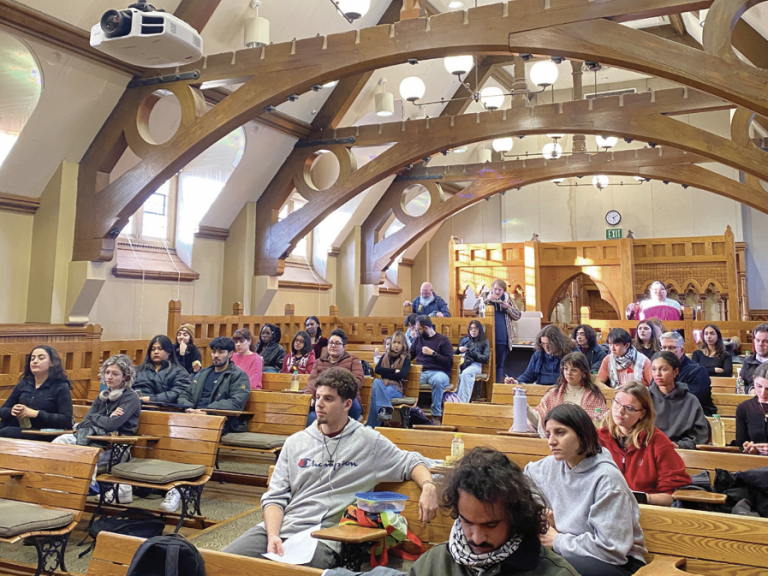Caitlin Doherty ’26
News Editor
Ales Bialiatski, winner of a 2022 Nobel Peace Prize, was sentenced to ten years in prison on Friday, March 3rd. He won a Nobel last year for his activism, alongside two other human rights organizations based in Russia and Ukraine. Bialiatski is known as the founder of the Viasna Human Rights Center, whose goal is to promote a democratic society in Belarus. After the Soviet Union overtook his home country of Belarus in 1944, he began his work amidst the tense political climate in Cold War-era Europe. Belarus gained independence from the Soviet Union in 1991, but the country’s new constitution, adopted in 1994, essentially allowed for a dictatorship to take over. President Aleksander Lukashenko has been the only “president” of Belarus since this office was instituted in 1994. In 1996, when President Lukashenko officially took control of the nation, Bialiatski started Viasna to advocate for democracy and provide aid to the individuals arrested during protests against the dictatorship and their families. In the years following, Viasna continued in its advocacy within Belarus as it documented human rights abuses and crimes of the government. The organization currently maintains a list of political prisoners unfairly held in Belarus, which numbers at 1,457 as of March 3rd, and it tallies another list that includes individuals convicted for political crimes against the regime, which currently includes over 2,800 names. Including Ales Bialiatski, six members of Viasna are currently in jail as political prisoners. A campaign page titled #FreeViasna details that organization members have faced over ninety-five raids and one-hundred and seventy interrogations by the Belarusian government because of their advocacy against human rights violations in the country.
This is not the first time Ales Bialiatski has been imprisoned by the Belarusian government. According to the Nobel Prize website, he was released from prison in 2014 after being sentenced in 2011 for supposed tax evasion. However, it is broadly believed that he was imprisoned not because of tax evasion but because of his pro-democracy advocacy and his exposure of the Belarusian government’s human rights violations. He was arrested again in June of 2021 after sympathizing with another wave of protests that broke out against President Lukashenko. In prison at the time of his Nobel Prize win in 2022, he has not been released since his arrest in 2021, and this Friday, March 3rd, he was sentenced to ten years in prison. He has been convicted with financing protests against the Belarusian regime and money laundering. Bialiatski was charged alongside three other human rights activists that have challenged the government, according to Reuters. Human rights activists across the world have spoken out about the injustice of their imprisonment; they have condemned the Belarusian government for silencing and imprisoning those who have challenged their authority. PEN, an international organization that advocates against censorship and aims to support activists at risk of silencing and imprisonment, released a joint statement from its centers in Belarus, Armenia, Moscow, and the United States. “Bialiatski is one of countless Belarusians jailed since Aleksander Lukashenko’s fraudulent election spurred a government crackdown on dissent. Today’s verdict shows that, in Belarus, the authorities defend Lukashenko’s dictatorship by making the defense of human rights a criminal act. We reject every step in the criminal prosecution of Bialiatski and call for his immediate and unconditional release. We condemn the arrests and imprisonments of all writers jailed in the Eurasia region and around the world.”







+ There are no comments
Add yours